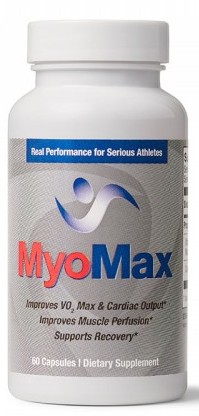Have you heard of K2? No, not the mountain; the vitamin. You haven’t? Well, you’re not alone – most people haven’t. Admittedly, it doesn’t crop up a great deal in Western world diets, which may explain its lack of recognition. Yet, it really ought to be better recognised, given the critical role it can play to maintain both good heart and bone health.
And that, we feel, here at The Finchley Clinic, is a moot point because, if you’re not getting enough Vitamin K2 from your diet (and the chances are you’re not), why not turn to high-quality supplementation for it, instead…?
Vitamins K1 and K2
Vitamin K2 is, in fact, one of the two forms of Vitamin K; the latter having been long recognised as essential for blood clotting – or blood coagulation. Vitamin K’s discovery was first reported in a German scientific journal and referred to as ‘Koagulationsvitamin’; explaining the ‘K’ in its name.
Alongside K2, the other form of Vitamin K is K1 (also known as phylloquinone), which occurs in plant foods like leafy greens, while K2 (also known as menaquinone) occurs mostly in certain animal-based and fermented foods.
What do K1 and K2 do?
In general, Vitamin K is critical to the body’s natural function, by aiding blood clotting and calcium metabolism, as well as helping to maintain heart health. Its involvement with calcium extends to the fact it importantly supports bone calcification, while preventing calcification of blood vessels and the kidneys.
What specifically of K1 and K2, though? Well, although they’re both forms of Vitamin K, some experts believe the roles of K1 and K2 differ to a large degree, so should be classified separately from each other. Indeed, this thinking appears to be supported by certain studies that have found K2 supplements can improve bone and heart health, while K1 (without K2) appears to provide no significant benefits here.
Vitamin K2 – may help prevent heart disease
Now, a big risk for heart disease is if calcium congregates in the arteries around the heart; so, anything that may reduce this build-up of calcium could be very important – and it’s believed Vitamin K can help here. One particular study has demonstrated that, of all its test subjects, those who consumed the largest amounts of K2 were 52% less likely to develop artery calcification, while they ran a 57% lower risk of death from heart disease.
Vitamin K2 – may boost bone health
One of the most harmful health conditions for bone health is osteoporosis; quite simply, it drives up the chance of someone experiencing bone breaks. As many are aware, it’s a very common ailment, not least among ageing women. Evidence shows, though, that K2 can help counter osteoporosis by promoting the binding of two proteins (matrix GLA protein and osteocalcin) to aid the construction and maintenance of bones.
Indeed, one study has found that postmenopausal women taking Vitamin K2 supplements experience far slower reductions in age-related bone mineral density. Moreover, other studies into K2’s effect on women’s bone health have revealed similar results. Out of 13 of them, only one study’s results didn’t suggest significant improvement, while seven of the studies suggested K2 decreases spinal fractures by 60%, hip fractures by 77% and all non-spinal fractures by 81%.
Consuming Vitamin K2 – food and supplements
Unfortunately, unlike K1, Vitamin K2 doesn’t feature in that many widely available foods. Plus, although the body’s capable of converting the K1 it receives from a balanced diet into K2, studies suggest that the average person is unlikely to get sufficient K2 this way.

So, how to get more K2? Well, it is available in specific foods, such as high-fat dairy products like beef from grass-fed cows, egg yolks, liver and other organ meats. Clearly, though, this is obviously of little good for those whose diets, for different reasons, won’t accommodate such foods. In which case, trying Vitamin K2 supplements is a great alternative. Such a supplement you may well be interested in taking a look at, then is Vitamin K2 Myomax, newly available from us at The Finchley Clinic.
This product (which delivers K2 in a high-dosage and is 100% soy-free), the manufacturer confidently claims, may well improve users’ cardiac output and the oxygenation of their body tissue, in addition to supporting their bone, nerve, heart and arterial health and efficient mitochondrial function.
To be clear, there’s no silver bullet for ensuring good heart and bone health across one’s life, but healthy-living, a good, balanced diet, sensible exercise and Vitamin K2 consumption via high-quality, organic-derived supplementation are the right steps to take.
